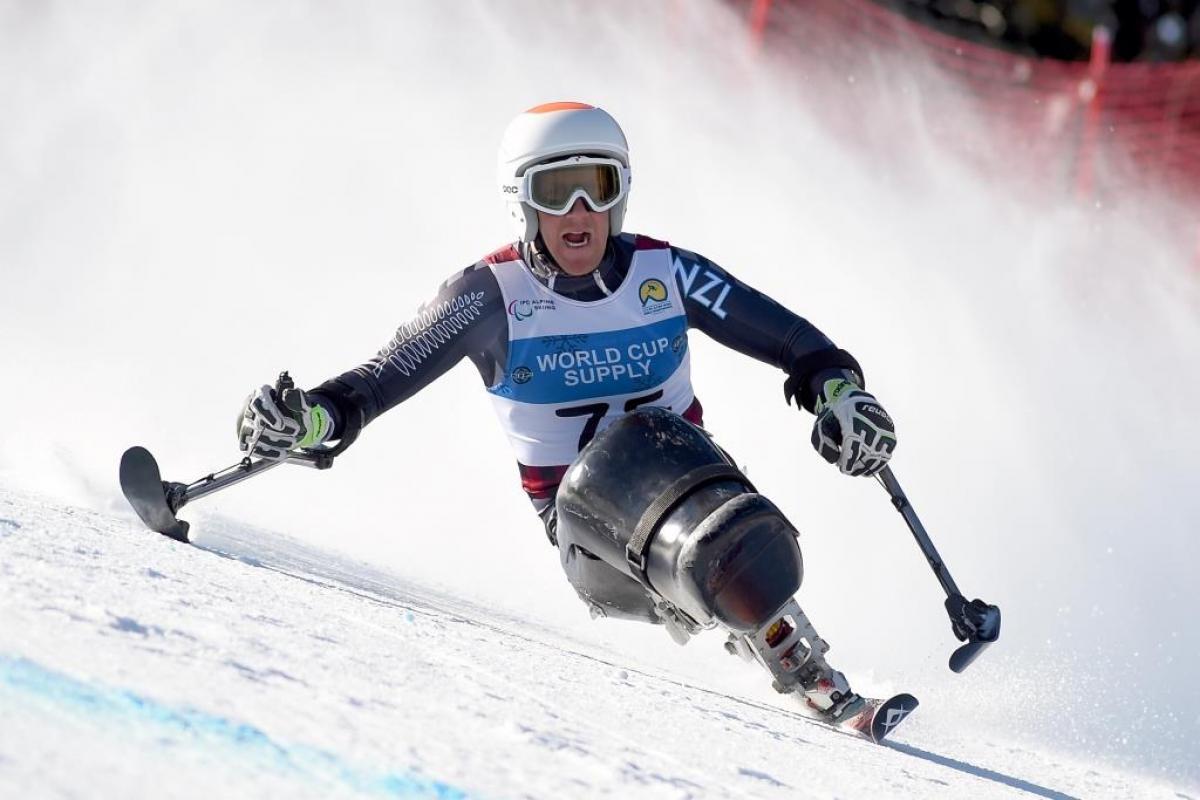Corey Peters targets Paralympic gold at PyeongChang 2018
New Zealand’s alpine skier seeks to outdo his performance from Sochi 2014, when he won silver in the men’s giant slalom sitting. 17 Apr 2017
With PyeongChang 2018 now less than a year away, New Zealand’s Corey Peters has set his sights on winning gold at the Paralympic Winter Games.
The Para alpine skier is fresh from winning two silvers in both the men’s super-G and downhill sitting at the Tarvisio 2017 World Championships and is full of confidence ahead of next year.
“I want to be successful,” said Peters, who won silver in the men’s giant slalom sitting at Sochi 2014. “I want to be a gold medallist at PyeongChang 2018, and I want to put everything into the next 11 months and make sure that I’m 100 per cent ready.”
Peters did not give himself much time to relax after March’s Test Event in PyeongChang, South Korea. Peters said right after the event, he continued looking for ways to improve his skiing.
“As soon as I got back from the Test Event, I took my shocks into a shock specialist looking to make a few adjustments, so that I can then test it throughout the New Zealand season,” he said.
Peters added better shocks will help him respond better to ruts on course.
“[When I hit a rut], I actually push a little harder, because I know I’ve got time to make up,” he said.
“That can be a good thing, but it can also be a bad thing, because if you are already pushing the envelope and you try to push a little too much, you can end up either making more mistakes or crashing out.”
“I think my reactions are pretty good. I guess it’s more that if you were to hit a rut or a bump and get kind of sped outside of the line … All you can do then is try to back on line and react.”
As the pool of talented alpine skiers continues to grow, Peters said there is also added pressure from his competitors but that makes the experience more enjoyable.
“It’s great for the sport,” he said. “It adds a lot more professionalism to it with all those guys being so tight, and it’s not only going to be good for the sport, but [also for] helping grow it.”
Off the snow, Peters has already started working with an added emphasis on strengthening his shoulders and core.
With all the work in the off-season, and despite managing a lingering left shoulder injury from 2012, he is expected to find multiple podium finishes next season.
“You train four years for this,” he said of the Paralympic Winter Games. “I don’t really want to leave any stone unturned.”




